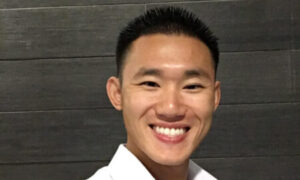A Look at How One Oakland-Based Recruiter is Shaping the Future of Hiring
Leon Chang is not your typical recruiter. He is a strategist, a problem solver, and above all, a connector. Based in Oakland, California, Leon has spent years mastering the art of recruitment, blending technology with a human-centered approach. His career spans major companies like Tesla, Robert Half International, and Zum Services, where he has led large-scale hiring efforts and refined the hiring process.
Leon’s approach is simple: recruitment is about more than filling positions. It’s about understanding people. “A resume tells you what someone has done,” Leon says, “but a conversation tells you who they are.”
A Career Built on Connection
Leon grew up in Oakland, a city known for its diversity and resilience. He took those same qualities into his career. After earning a Bachelor’s degree in Economics, a minor in Communication, and a Master’s degree in Education from the University of California, Davis, he entered the world of recruiting.
His first major role was at Robert Half, where he specialized in recruiting for administrative, finance, and accounting positions. He quickly made a name for himself, earning global recognition as a top recruiter. He later worked at Tesla, where he helped scale leadership hiring for manufacturing teams.
At Zum Services, he faced one of his biggest challenges: launching 15+ school bus yards across multiple states. It required hiring over 1,500 drivers and 50+ staff members in a short period. “That was a turning point for me,” Leon reflects. “I realized recruitment isn’t just about jobs—it’s about communities, economies, and real impact.”
Now, Leon is returning to Robert Half as a Finance and Accounting Recruiting Manager, where he will focus on connecting businesses with top financial talent. His goal is to make hiring smoother, smarter, and more human.
The Role of Technology in Recruitment
Leon has seen the rise of AI, automation, and data analytics in hiring. While he embraces these tools, he warns against over-relying on them. “Technology makes hiring faster, but it doesn’t make it better,” he explains. “At the end of the day, people hire people, not algorithms.”
He believes AI can be useful in screening resumes, identifying hiring trends, and automating repetitive tasks. But when it comes to finding the right fit, nothing replaces direct interaction. “A candidate might not have every skill listed on paper, but if they have the right mindset and adaptability, they can thrive,” Leon says.
His philosophy is clear: use technology to enhance human connection, not replace it.
The Future of Hiring
Leon sees a major shift happening in recruitment. Remote work, skills-based hiring, and a greater focus on diversity, equity, and inclusion are changing how companies approach talent acquisition.
“More companies are prioritizing cultural fit and adaptability over just hard skills,” Leon notes. “And that’s a good thing. A great team isn’t just about who has the most experience—it’s about who can work together to solve problems.”
He also encourages job seekers to embrace the changing landscape. “Candidates need to be proactive. Build your skills, network with intention, and stay open to opportunities. The job market is evolving, and the most adaptable people will thrive.”
Lessons from Experience
Over the years, Leon has learned a few key lessons about success in recruiting and career growth. One of them? Follow up. “I can’t tell you how many times a simple follow-up email has led to an opportunity,” he says. “Persistence pays off.”
Another lesson: take risks. Early in his career, Leon hesitated on some opportunities because he didn’t feel 100% ready. Looking back, he wishes he had trusted himself more. “You don’t need to know everything before you start,” he says. “You learn by doing.”
He also believes in the power of relationships. “Your network is your career’s safety net. Build it before you need it.”
Balancing Work and Life
Recruiting is a fast-paced industry. The constant need to fill roles, meet deadlines, and manage client expectations can be overwhelming. Leon has found that stepping away is essential to staying focused.
“When I feel burned out, I go snowboarding, lift weights, or just take a walk,” he says. “It resets my mind and helps me come back sharper.”
Family and travel are also big parts of his life. “Spending time with loved ones reminds me why I do what I do. Work is important, but so is living.”
Final Thoughts
Leon Chang is shaping the future of recruitment—one hire, one conversation, and one connection at a time. His blend of technical knowledge and human insight makes him a standout in his field.
As he steps into his new role at Robert Half, one thing remains the same: his commitment to making hiring a smarter, more personal process. “The best recruiters don’t just fill jobs,” he says. “They change lives.”
Read more:
Leon Chang: The Recruiter Bridging Tech, Talent, and Human Connection

